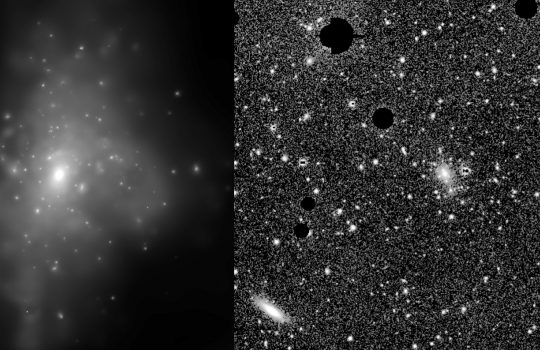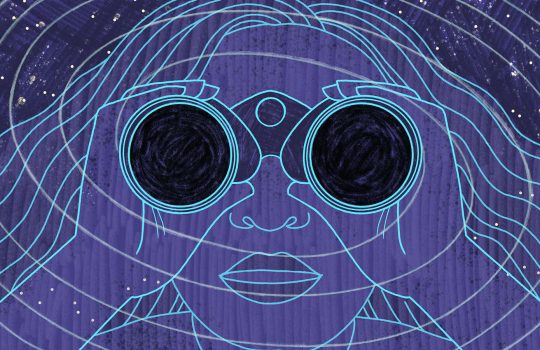By measuring light from individual stars between galaxy clusters, astronomers find clues about dark matter
- astronomy
- astrophysics
- cosmology
- dark energy
- Dark Energy Survey
- dark matter
- galaxy
- gravitational lensing
- light
- measurements
- star
From Universe Today, Feb. 3, 2021: Recent published results from the Dark Energy Survey point to intracluster light — feeble light from rogue stars that don’t belong to a galaxy — as a potential pathway to measure dark matter. Fermilab scientist Yuanyuan Zhang contextualizes the findings.



